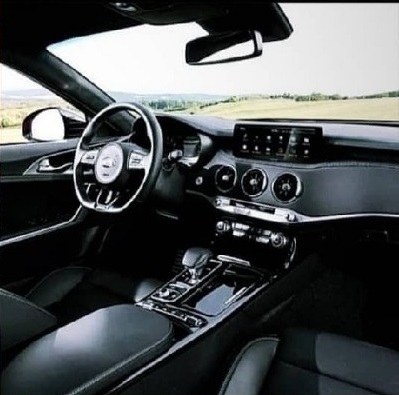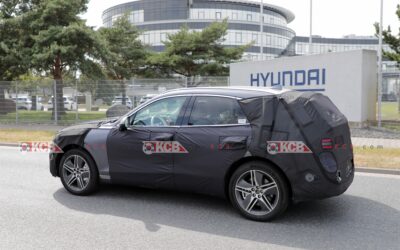Kia have recently showed all their cards related to Kia Stinger partial change that is coming in July. According to Kia Motors officials, despite the introduction of the Smartstream 2.5-liter and 3.5-liter gasoline Turbo engines, will also include a variable exhaust system and a 10,25 inch widescreen for the infotainment system.
[ads id=”9″]
The Kia Motors’ first variable exhaust system is applied to the Stinger partial change. It is a device that can adjust the exhaust sound generated from outside the actual vehicle beyond the current Stinger sound generator. It is the first time that a variable exhaust system is applied to a factory-spec domestic car except for the N brand.
Indoors, the infotainment monitor grows from 8 inches to 10.25 inches. The interior layout retains the shape of the current model, and the upper trim includes quality napa leather seats, as well as advanced materials and colors. The dashboard and door trim are covered with leather covering and stitching.
The instrument panel is replaced with a digital type from the existing analog. Changes in exterior design focus on enhancing detail. The graphic inside the headlamp and the front and rear bumper design are changed, and a new design wheel is introduced. The rear lamp is a horizontal bar connected to the left and right, and a sequential direction indicator is applied.
[ads id=”8″]
The powertrain is based on the SmartStream G2.5 T-GDI engine with a maximum output of 304 hp and a maximum torque of 43.0 kgm, and the top model is equipped with a SmartStream G3.5 GDi engine with a maximum output that could rose 400 hp and a maximum torque of 54.0 kgm (according to latest report from Reuters). Indirect injection (PFI) and direct injection (GDI) are used together to increase efficiency.
Smartstream has significantly improved performance in terms of fuel efficiency improvement, combustion improvement, exhaust gas reduction, and engine friction reduction compared to the previous powertrain. Through this, it is possible to respond to global fuel economy and environmental regulations that are intensifying as well as vehicles. Performance was greatly improved.









